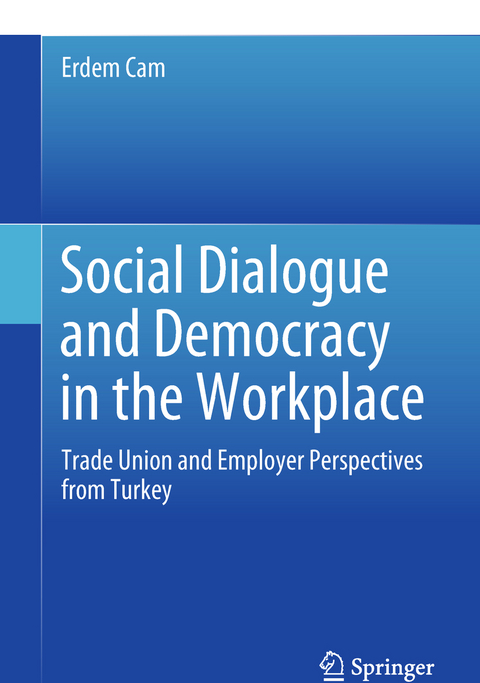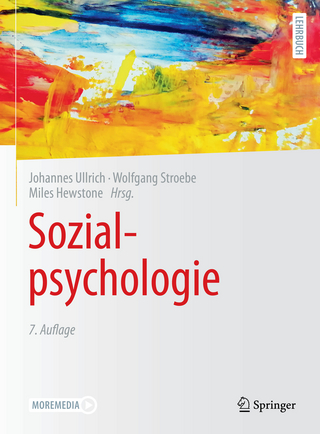
Social Dialogue and Democracy in the Workplace
Springer Verlag, Singapore
978-981-10-8481-2 (ISBN)
Dr. Erdem Cam is an Associate Professor of Social Policy in Turkey. He received his Bachelor's degree in Labour Economics and Industrial Relations from Gazi University and his Master’s and Ph.D. degrees in the same field from Ankara University. He was also a visiting Ph.D. Research Student at the University of Leicester between 2006 and 2007 and a Visiting Ph.D. Research Fellow at the Bangor University between 2009 and 2010 and a Visiting Academics at the Queen Mary, University of London in 2017. Dr. Cam is an Editor in Chief, Co-Editor, Editorial Board Member and Advisory Board Member of several journals in the field of labour relations and social policy. He is also an author of several refereed articles, books and book chapters in Turkish and English.
List of figures and tables.- Foreword.- Acknowledgement.- Abbreviations and acronyms.- Introduction.- Chapter 1 Concepts.- 1. Introduction.- 1.1. Social dialogue.- 1.1.1. Social partners in the context of class differences.- 1.1.2. Social dialogue in the workplace and democracy.- 1.1.3. Models providing social dialogue in the workplace.- 1.1.3.1. Representation on administrative and supervisory boards.- 1.1.3.2. Work councils.- 1.1.3.3. Expert boards.- 1.1.3.4. Workplace representation.- 1.1.4. Tripartite dialogue.- 1.1.5. Multilateral dialogue.- 1.2. Dialogue’s power of influence in the decision making processes.- 1.3. Industrial democracy and social dialogue.- 1.4. Conclusion.- Chapter 2 Theoretical framework.- 2. Initial views on social dialogue.- 2.1. Confrontational approaches.- 2.1.1. Confrontational approach to industrial relations.- 2.1.2. Power relations in industrial relations.- 2.2. Conciliatory approaches.- 2.2.1. System theory.- 2.2.2. Pluralist approach.- 2.2.3. Humanresources management approach.- Chapter 3 Method.- 3. Methodological background.- 3.1. Studying social dialogue from the social partners’ perspective.- 3.2. Research question.- 3.3. Interviewed institutions.- 3.4. Process of contacting interviewees.- 3.5. Analysis of findings.- Chapter 4 The legal framework and scope of social dialogue at the workplace level in Turkey.- 4. Bilateral social dialogue in Turkish working life.- 4.1. Close pre-republic period.- 4.2. Post-republic period.- 4.2.1. Effects of classless social structure understanding.- 4.2.2. Collective bargaining and bilateral social dialogue.- 4.3. Other bilateral social dialogue applications.- 4.3.1. Representation and social dialogue in the workplace.- 4.3.1.1. Workers representation.- 4.3.1.2. Workplace union representation.- 4.3.2. Labour relations within the framework of boards.- 4.3.2.1. Boards structured by legislation.- A. Paid annual leave board.- B. Occupational health and safety board.- C. Commissionfor stopping and closing business.- D. Workplace health and safety units.- 4.3.2.2. Boards structured by collective bargaining.- A. Workplace disciplinary board.- B. Damage assessment board.- C. Industrial relations board.- D. Dispute resolution board.- 4.4. Conclusion.- Chapter 5 Opinions of social partners: Turkey, land of differences in labor relations.- 5. Different approach patterns among social partners.- 5.1. Union movement and social dialogue.- 5.1.1. Proletarianisation process in Turkey.- 5.1.2. Development of union movement and competition between unions.- 5.2. Barriers for freedom of association and collective bargaining.- 5.2.1. Low bargaining means low social dialogue.- 5.2.2. Effects caused by sectoral and workplace thresholds for collective bargaining.- 5.2.3. Disunionisation efforts and decentralised relations.- 5.3. Subcontracting and social dialogue.- 5.4. Competition –productivity and social dialogue.- 5.5. Workplace level social dialogue in the European Union process.- 5.5.1. Pressures on Turkey.- 5.5.2. Differences in approach between European and Turkish employers.- 5.6. Workplace boards and social dialogue.- 5.7. Worker representation and volunteer boards.- 5.7.1. Can worker representation be an option?.- 5.8. Social partnership and social dialogue.- 5.9. Socio-cultural values and social dialogue.- 5.10. An attempt to explain Turkish labor relations theoretically.- Discussion and conclusion.- Bibliography.- Annexes.- List of figures and tables.
| Erscheinungsdatum | 03.08.2018 |
|---|---|
| Zusatzinfo | 3 Illustrations, black and white; XV, 192 p. 3 illus. |
| Verlagsort | Singapore |
| Sprache | englisch |
| Maße | 155 x 235 mm |
| Themenwelt | Geisteswissenschaften ► Psychologie ► Arbeits- und Organisationspsychologie |
| Medizin / Pharmazie ► Medizinische Fachgebiete ► Psychiatrie / Psychotherapie | |
| Recht / Steuern ► Arbeits- / Sozialrecht ► Arbeitsrecht | |
| Recht / Steuern ► EU / Internationales Recht | |
| Sozialwissenschaften ► Soziologie ► Mikrosoziologie | |
| Schlagworte | Bilateral social dialogue in Turkish working life • Collective bargaining in Turkish work life • Democracy in the workplace • Dispute resolution in the workplace • Employers in Turkey • Industrial democracy and social dialogue • Labour relations and social policy • Multilateral dialogue in Turkey • Occupational Health and Safety • Social dialogue and labour realtions in the workpl • Social dialogue and labour realtions in the workplace • Social dialogue mechanisms at the workplace • Socio-cultural values in Turkey • Trade unions in Turkey • Tripartite dialogue in Turkey • Union movement in Turkey • Workplace union representation in Turkey |
| ISBN-10 | 981-10-8481-5 / 9811084815 |
| ISBN-13 | 978-981-10-8481-2 / 9789811084812 |
| Zustand | Neuware |
| Haben Sie eine Frage zum Produkt? |
aus dem Bereich


